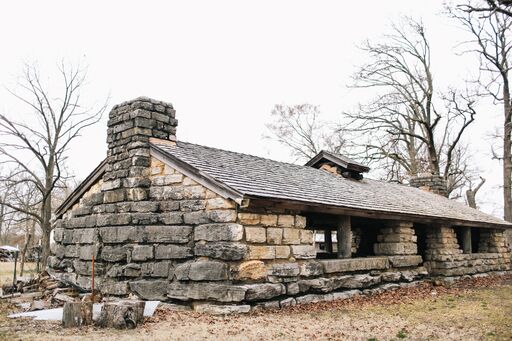April 13, 2020
Today’s post comes from Sue Channing, who is the Secretary-Treasurer of the Business Committee. In this post Sue gives her perspective on the importance of last years constitutional referendum.
The upcoming election has brought up an important question in many people's minds: who will get a ballot? The answer is straightforward. Anybody who is listed on the official rolls kept by the Enrollment Department and is 18 years of age or older will get a ballot in the mail. There will not be any in-person voting.
Who gets a ballot for this election is clear. However, we do face a challenge as a Nation about the question of enrollment, and who is Seneca-Cayuga. Several years ago, I helped initiate a referendum to change the language in our Constitution that defines who is a member of our Nation. The referendum came to a vote in 2019, and it failed to pass. The issue that it was addressing has not gone away, and everyone needs to understand why the referendum was needed.
Article III of the Constitution and Bylaws of the Seneca-Cayuga Nation defines who is a member of the Seneca-Cayuga Nation. The entire article reads:
ARTICLE III - MEMBERSHIP OF NATION
The membership of the Seneca-Cayuga Nation shall consist of the following persons:
- All persons of Indian blood whose names appear on the official census roll of the Nation as of January 1, 1937
- All children born since the date of said roll, both of whose parents are members of the Nation.
- Any child born of a marriage between a member of the Seneca-Cayuga Nation and a member of any other Indian tribe who chooses to affiliate with the Seneca-Cayuga Nation.
- Any child born of a marriage between a member of the Seneca-Cayuga Nation and any other person, if such child is admitted to membership by the Council of the Seneca-Cayuga Nation.
Along with the rest of the Business Committee, I recognize that the "born of a marriage" language in the Constitution is not inclusive of all tribal members and is discriminatory based upon an individual's parentage. The Nation's first Business Committees, as well as Enrollment Committees, have adopted various policies throughout the intervening years to interpret and apply those membership requirements to the enrollment of tribal members. In 1983 the Bureau of Indian Affairs issued an opinion that either common law or licensed marriages would satisfy the marriage criteria for membership. However, that opinion recognizes the validity of the marriage requirement set out in Article III; it did not expand the constitutional language to encompass tribal children born outside of marriage. Even the least restrictive interpretation of the Constitution’s marriage requirement does not allow enrollment of children born to unmarried parents.
As a result of the conflicting enrollment policies historically enacted, we have tribal members enrolled that do not meet the Constitutional criteria for membership. If passed, the Constitutional amendment would have made people's enrollment secure by changing the language of the Constitution to match the reality that some member's parents were unmarried. Those tribal members still need the protection of a change in the law.
Here’s why a change in the Nation’s Constitution is essential and will benefit every tribal member in the future:
First, the Constitution and Bylaws are the governing law of the Nation. We cannot operate as a federally recognized tribal government if we do not adhere to the Constitution in the most basic criteria for tribal membership.
Second, enrollments that do not follow the Constitution open us up to outside meddling from the federal government and its agencies. For example, we administer several grants from the federal government that are only for Seneca-Cayuga Nation tribal members. The funding formula for the allocation of federal funds is based on an accurate count of tribal members. Due to the uncertainty of our membership rolls, there is a possibility of reduction in funding or even the loss of grants by reviewing agencies such as the Bureau of Indian Affairs, Indian Health Service, or other government agencies. To be clear, I do not know of a current threat to our funding. However, the danger to our federal funding is ever present especially in today’s national health crisis which will only heighten the scrutiny and oversight of federal tribal grants.
Finally, any child born of a Seneca-Cayuga tribal member would be recognized as a member of our Nation and enrolled accordingly! Updating the Constitution will allow pending applications to be completed, and secure tribal membership as a matter of course for future generations.
As a sovereign nation, we must follow our laws, but we also must come together and change those laws when needed to protect our members and their rights. Until the language of the Constitution is changed, this is a challenge our Nation faces. Nearly every family, including my own, has someone whose membership status is impacted by this issue. The process of putting referendums on the ballot is complicated and lengthy due to the oversight of the Bureau of Indian Affairs. Despite the challenges, I am committed to bringing clarity to enrollment issues, and to making every possible effort to change the Constitution's language to match the past practices of enrollment. If we work together, we can follow the Constitution and ensure the security of every member's enrollment.
